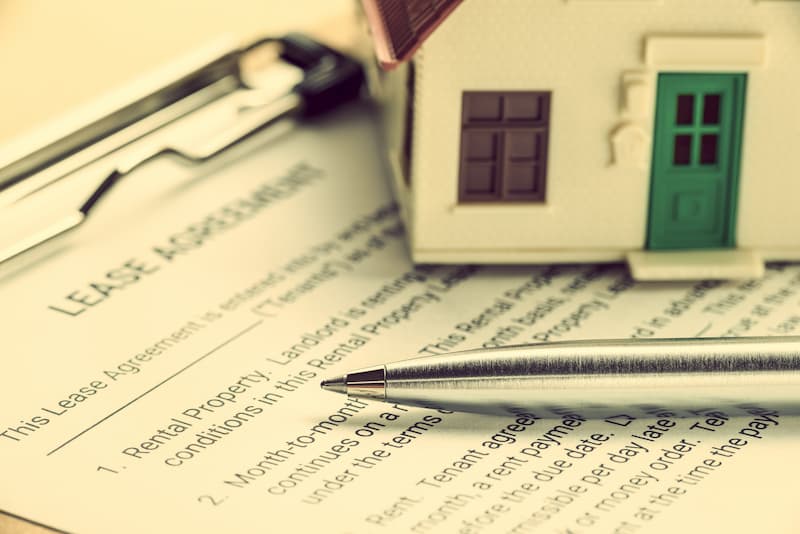Rental property can be a great investment, and over recent years, more people have purchased a property with the intention of making it available to rent, known as buy to let. Managed well, it can be a relatively stress-free and mutually beneficial arrangement.
Occasionally, however, disputes do arise. These are most often over small issues, but sometimes they are over more substantial breaches of the tenancy agreement. How you handle these disputes when they arise can ultimately influence their outcome. Most disputes can be resolved through communication and negotiation without ever going anywhere near a court.
Click on a link to jump to that section:
Find out how landlord-tenant disputes commonly occur.
Read our tips on what to do when your property isn’t let.
The steps you can take to prevent any landlord-tenant issues from arising in future.
We answer frequently asked questions on solving landlord-tenant issues.
The most common landlord-tenant disputes
Problems and disputes that can occur fall into a number of different categories:
Issues with the property
- Damp and mould – damp can be a persistent problem in older properties, particularly if they’re poorly heated or ventilated. If left untreated, they can lead to more systematic issues and possible health problems.
- Drain issues – blocked drains are a common problem in properties. Their cause and resolution can often lead to disputes about who has responsibility for remedying them.
- Damage to the house – damage to the rented property, either inadvertently or by the actions of the tenant, can be a major headache for a landlord. Proving who caused the damage can sometimes be difficult, causing many landlord tenant disputes.
Preventing health hazards in your property is generally your responsibility. Read our full guide to the landlord’s responsibilities here.
Pets in the house
If a shorthold tenancy agreement clearly cites that the tenants are not allowed to keep pets, then any pet in the property is a breach of the lease. It’s therefore important to make sure that the contract clearly states that pets are not allowed in the property, rather than a verbal agreement. If you discover a tenant is keeping a pet, and it’s a breach of contract, you can try and negotiate a solution. If the tenants prove intractable, it is possible to proceed towards eviction, but consideration should always be given towards the needs of the tenant. Is the pet an assistance animal of some kind, for instance?
Paying bills
Issues can often arise around utility bills and how they are paid, and it’s not always just a case of tenants not paying their bills. It could, for instance, be that the tenants changed the utility supplier without telling you. Most commonly, however, disputes occur when tenants don’t pay bills, and the utility provider begins to seek redress. Another common issue is tenants moving out without paying bills. If your property is multi-occupancy, disputes can arise among the tenants about how bills are paid, which can grow to become something that the landlord has to deal with.
Offering a bills-inclusive agreement can prevent issues around bills arising. Split the Bills makes it easy to manage rental property bills. Rather than tracking lots of different demands, you make one single payment a month. You can read more about our services for landlords here.
Rent issues
The most common cause of dispute between tenants and landlords is over the payment of rent. Either rent is late or isn’t paid. Usually, a shorthold tenancy agreement will include the consequences for the tenant of not paying rent in a timely fashion. Before you talk to your solicitor about possible eviction, however, there are other steps you should take. Firstly, talk to your tenant. Don’t make this a demand for immediate payment, but find out the reasons why they haven’t paid. Does it sound legitimate? Is this the first time this has happened? You should also remind your tenant of the agreement they signed, the agreed rental charge and the consequences listed if they do not pay. At this point, if they continue to withhold payment, then you can seek legal advice about how to proceed to eviction if necessary.
You can read our guide on what to do if a tenant doesn’t pay rent here.

Property damage
As with every other area of potential tenant dispute, the best way to prevent arguments arising over damage to property is by anticipating them in advance. You are able to claim for any damage caused to the property. If the property is let furnished, then you are able to claim for the value of any damaged items. It’s important to take a thorough inventory of what’s in the property, to ensure that you’re able to claim should any damage occur. A professional inventory clerk will be able to discern between what’s fair wear and tear, and what’s damage that can be claimed for. They will be able to establish the difference in the inventory between the start and the end of the tenancy.
What to do during periods when your property isn’t let
The periods between tenancies are key times for managing your property. This is a time to take care of any maintenance as well as re-decorate and freshen up the property. It’s also an opportunity to look at the rent being charged. Ask yourself whether it is competitive with the market in the area. You should also use this time to check meter readings.
How to prevent tenant and landlord issues arising
Sometimes, issues arise that are completely out of your control. In most cases, however, good communication can prevent minor niggles from becoming something more substantive. To help keep disputes to a minimum, landlords should do the following: * Always follow up any verbal communication in writing. * Make sure everything is clear in the tenancy rental agreement and that tenants understand this. * Regularly keep check of the utility bill usage. You can read more about the landlord’s responsibilities around utility bills here. * Make sure you undertake thorough referencing checks before allowing tenants to move in. * Keep up to date on the laws surrounding letting a property. * Consider offering a bill-splitting service to prevent tenancy disputes about bills from occurring. Split The Bills makes it easy for tenants and landlords to keep track of their utility bills.
You can read more about our bill splitting services for landlords here.

Frequently asked questions – landlord-tenant issues
What options does a landlord have if a tenant does not pay rent on a commercial property?
The laws around commercial properties are more complex than residential ones. Seek legal advice to find out your options. You can read our guide on what to do if a tenant doesn’t pay rent here.
What should you do if a tenant passes away in one of your properties?
Inform the next of kin. If the tenancy is jointly held, it passes on to the surviving tenant, if not then the tenancy comes to an end.
Can you evict a violent tenant?
It may be possible, but it’s important to take legal advice. Compiling as much evidence as possible, from neighbours and other parties, may help your case.
How do you meet your legal obligations with respect to gas safety?
As a landlord, you are legally responsible for gas safety in the property. You are required to keep gas appliances and pipes etc., in safe working order. An annual gas safety check must take place, and a record must be kept. Read more about the responsibilities of a landlord when letting a property here.
As a landlord, should I stop charging rent during the pandemic?
You are under no obligation to stop charging rent during the pandemic, but the rules around evictions are changing all the time. No evictions can take place during lockdown periods. Some landlords have agreed rental holidays with the tenants who may have a reduced income as a result of the pandemic. It is important to be considerate and understanding if your tenants are struggling with lack of income.
How do you protect yourself from a bad tenant?
The surest way to protect yourself from a bad tenant is to undertake thorough referencing checks before a tenancy is agreed. If you don’t have much time to do this yourself, you can consider using a letting agent to act on your behalf.
Related content
What to do if a tenant doesn’t pay rent
The landlord’s responsibilities towards utility bills
